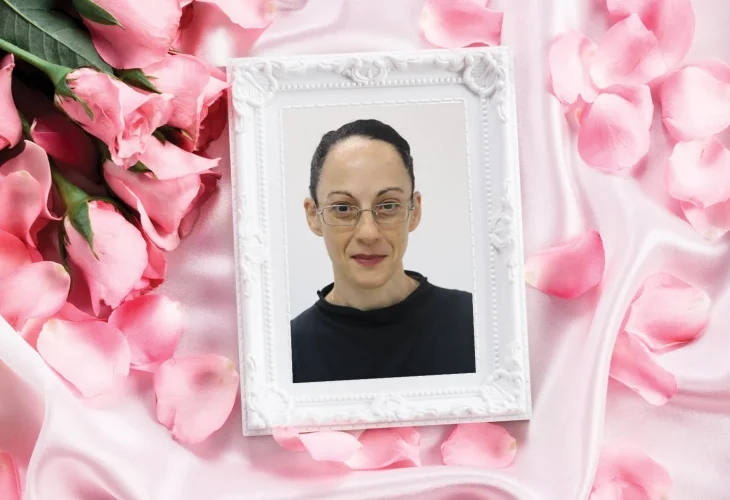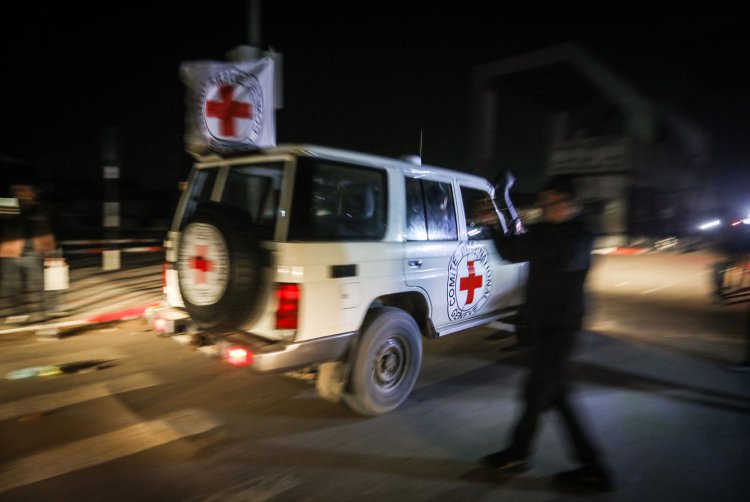The Journey Home: Challenges Freed Hostages Face After Release
"Returning home is just the beginning of a challenging journey," says Dr. Idit Gutman, a psychologist from Tel Aviv University. What do returning captives experience upon release, and can they truly reclaim fulfilling lives?
 Psychologist Dr. Idit Gutman (Photo: Shahar Shahar, Tel Aviv University)
Psychologist Dr. Idit Gutman (Photo: Shahar Shahar, Tel Aviv University)"What does a person in captivity feel when informed of their imminent release, and what do they experience in the first days back home?" This question echoes in our hearts as we watch the emotional scenes of captives returning to their families.
Many of us shed tears during those emotional reunions, seeing the warm embraces and joyous expressions of the returned women and their parents. But what truly unfolds in their minds at these moments? What lies beneath the joy and relief?
To understand the immense psychological complexity of returning from prolonged captivity, we turned to Dr. Idit Gutman, a senior clinical psychologist at Tel Aviv University, who sheds light on the unique challenges faced by the returning captives. Dr. Gutman explains that at these long-awaited moments of return, captives might confront one of the toughest psychological challenges of their entire captivity, and we all, as a society, need to be aware of this.
 Photo: FLASH90
Photo: FLASH90 Photo: FLASH90
Photo: FLASH90The Fear of Returning
"We haven't had similar histories of such captivity," notes Dr. Gutman, "but reports from former captives, such as pilots returning from Syria and others, reveal a profound fear of returning. This stems from the fact that a person in captivity focuses solely on one thing – 'survival.' Often, they enter a state of 'dissociation,' meaning 'detachment.' They prevent themselves from thinking about home and their normal life, slipping into survival mode, living moment to moment."
"Former captives have often shared how they avoided thinking about their losses, their parents' heartache, dear ones left behind and their fates. During captivity, there's no time or energy for such thoughts. Such nightmares usually only break through post-release."
Dr. Gutman emphasizes that this is why, when a captive learns of impending release, the first emotion felt is fear, followed by thoughts about "how they'll appear to their loved ones upon seeing them," thoughts which never concerned them during captivity.
"In the previous exchange, returning captives mentioned they braided their hair in anticipation of their return, illustrating the process – the thought of whom they'll meet, and with it, the accompanying fears previously unconsidered. After over a year in captivity, you're not returning to a paused life; many lost things won't return, and the pain can be daunting and terrifying."
"On a practical level, there's the transition from the dark, dull emptiness of tunnels to an overload of light, people, and smells—sensory elements absent during captivity—which can lead to overwhelming difficulty due to overflow. Just as food and drink intake is controlled post-captivity according to protocol, so too should other aspects follow a gradual reintroduction. Returning home might be technically feasible, but recovery should allow for a gradual progression, much like ascending from deep waters, recognizing human limits."
"Additionally, at this stage, captives may experience 'survivor's guilt'—the burden of being alive while others remain behind. These emotions are extremely challenging and overwhelming."
 Photo: FLASH90
Photo: FLASH90Readjusting to Life
How long does this adjustment period last for returning captives?
"It's hard to specify since it varies for each person, but one thing is clear—the moment of landing home marks only the beginning. It's then that they start adjusting to a new identity and understanding their captivity experiences. It's also when nightmares begin, now able to sleep without the constant alertness to doors opening or being led elsewhere."
"This marks the start of processing the trauma, with accompanying sentiments like 'what could have been done differently?' Although irrational, it's human nature to seek control even in uncontrollable scenarios and question whether they could have prevented their or others' abuses. The answer is always, 'No, there was no way to stop it,' but reaching that understanding takes time."
What do the returned women need most now that they're home?
"The most crucial thing is enabling them to regain control and privacy over their lives. To cease being 'captives,' 'hostages,' or 'bargaining chips' in a dreadful game, and to once again become young, private women recovering.
"Opposite Hamas, which deprived them of necessities and freedom, we must restore and simply give them time and space to control their lives. Only they should decide who to meet, share with, or keep private."
"It's understandable that our desire to know their experiences is natural, feeling part of their families after recent events. But it's imperative that we all step back and afford them utmost privacy."
This contradicts the media's current coverage...
"True, but the public plays a role too. Alongside our joy and uplifted spirits, we should avoid burdensome or misplaced comments, even privately. Let's respect their privacy, understanding that their experience is solely their own."
Finally, Dr. Gutman calls attention to the families of the captives who've suffered emotional turmoil. "For them, too, the return isn't an end but the start of a demanding journey, still needing recognition, support, warmth, and guidance from us to best aid their daughters."
Are you optimistic? Do you think the freed captives can truly return to full lives after such prolonged captivity?
"The resilience shown by the families and by the returned survivors inspires optimism. Many Holocaust survivors rebuilt their lives, started families, and led full, happy lives—proving what's possible.
"Recently, we saw photos of Emily smiling and making a victory sign—a testament to her strength. I'm confident the returning captives are incredibly strong, will recover, and can eventually support future survivors. They possess immense strength, and with our support and embrace, they'll return to lives filled with goodness."

